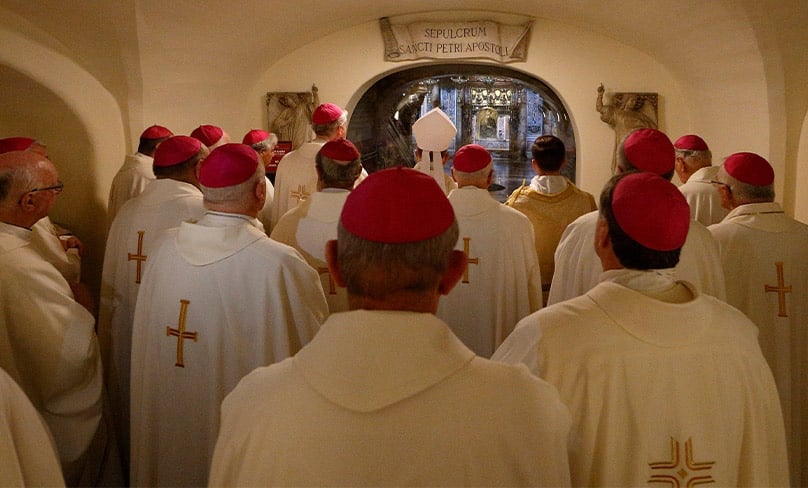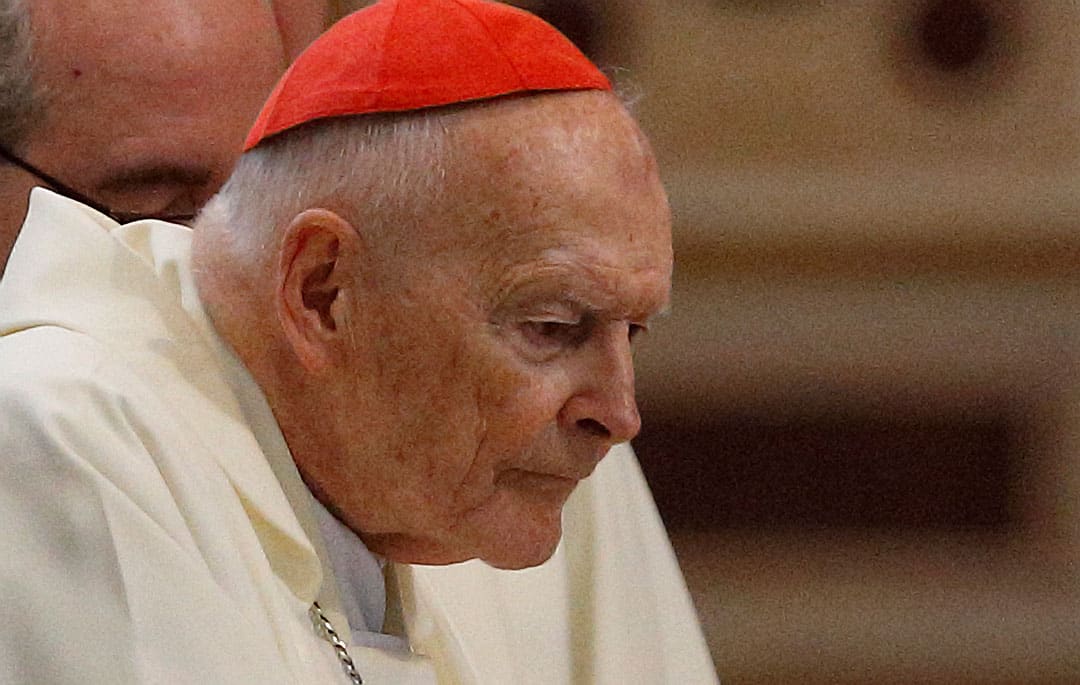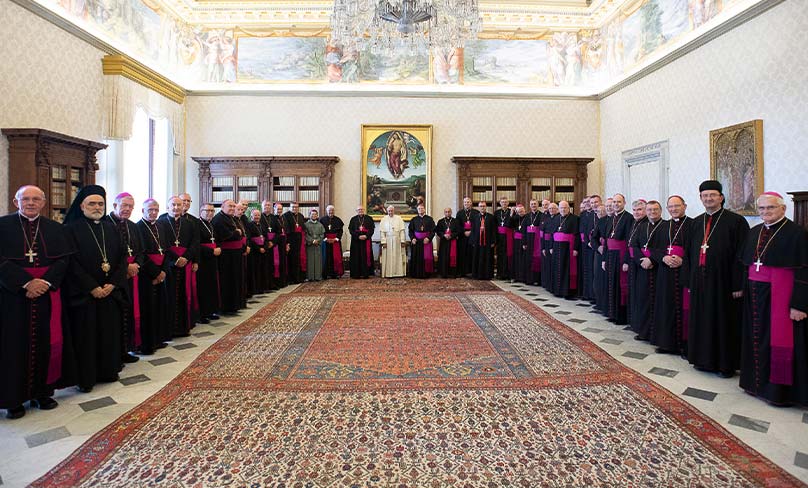
I’ve been thinking that smaller dioceses might make a real difference in Australia. They would bring our bishops back – closer to us and to their diocesan priests.
Pentecost Sunday is a terrific day to be thinking about bishops. We talk a lot about the role of the bishop, but we tend to forget about the character of the bishop.
Yet this is the most important piece of the puzzle. If you have a bishop with a good character, who’s striving for personal holiness and trying to bring us along with him, that’s wonderful.
If you have a bishop with bad character, who doesn’t care what happens to us as long as his insurance company says he’s not doing anything wrong, that’s terrible.
For example, if we ask bishops to supervise their priests professionally, how can we trust that the bishop won’t turn a blind eye to child sexual abuse?
How do we know that the bishop won’t play favourites and create an unpleasant clique of priests to terrorise lay people?
And what if the bishop selects handsome young seminarians and invites them to beach house weekends with not enough bedrooms for everyone?

Terrible bishops are a constant theme in Church history. I’ve said before that the Jerusalem Catholic Bishops Conference didn’t exactly distinguish itself at the first Easter.
But all those individual bishops went on to distinguish themselves at the first Pentecost Sunday, and afterwards. They paid for their episcopal ordinations with their lives.
I once invented a fictional bishop, Bishop Paul Steady of the Diocese of Bedlam, somewhere in metropolitan Australia. Bishop Paul Steady is a great guy.
Everyone loves him; he’s been bishop for many years now. He’s kind, he’s available, he never says or does anything to upset anyone, and it’s a mystery why his diocese has produced no priestly vocations for two decades.

This is what many Catholics in Australia have come to expect of their bishops – a great guy. Really nice. Really kind. Rather timid. All the right political opinions. Bland and forgettable.
Bishops are involved in the selection of other bishops, so it’s only natural that they choose men who are like them. If a bishop is a bland jobsworth, he’ll nominate other ‘safe hands’ like his own.
If a bishop is a sexual predator, he will nominate his fellow predators. He usually owes them, because they have information on him that he doesn’t want them to share.
No amount of safeguarding or codes of conduct will change any of this. What breaks this cycle is when good bishops get more say in appointments.
Good bishops also choose priests like themselves. These men show reverence in the liturgy, and a strong commitment to upholding Church teaching at the risk of being unpopular.
“Good bishops also choose priests like themselves. these men show reverence in the liturgy and a strong commitment to upholding church teaching at the risk of being unpopular”
They’ve served humbly and wisely wherever they’ve been put. They are faithful to the recitation of the Divine Office every day. They pray publicly as well as privately.
They put their priesthood first and foremost in their lives. Above all, they believe in the truths of the faith with a ferocity that belies their often mild exteriors.
So who should be involved in choosing bishops? The Plenary Council has suggested that lay people be more involved in this process. Not just any lay people, of course – but special ones who would understand.
I will leave you to guess who these special lay Catholics will be – but you already know the answer. They’re the professional Catholics who somehow always end up in business class when it comes to Church matters.
“social network analysis shows that a bad bishop can extend his legacy for decades through his bad appointments. but a good bishop can do the same”.
Weak, worldly, or poorly formed lay Catholics will choose bishops like themselves. If you’re a Boomer with a long professional career behind you and some muddled 1970s theology in your head, you’ll choose someone like Bishop Paul Steady. Bishop Steady is the kind of bishop who will never cross you, and never make you uncomfortable. He will never call out your weird ideas about ‘Christ-consciousness’ and your bourgeois complacency.
If you’re well-formed in your faith, and know the importance of the bishop as authentic teacher, priest, and governor of the diocese, you’ll choose someone quite different. He won’t be Bishop Guy Smiley – but he may be Bishop Guy Holy.
Social network analysis shows that a bad bishop can extend his legacy for decades through his bad appointments. But a good bishop can do the same.
We need to be seeking out the good ones as soon as possible if we’re ever to rescue the Church in Australia from its current rapid decline.
Related
